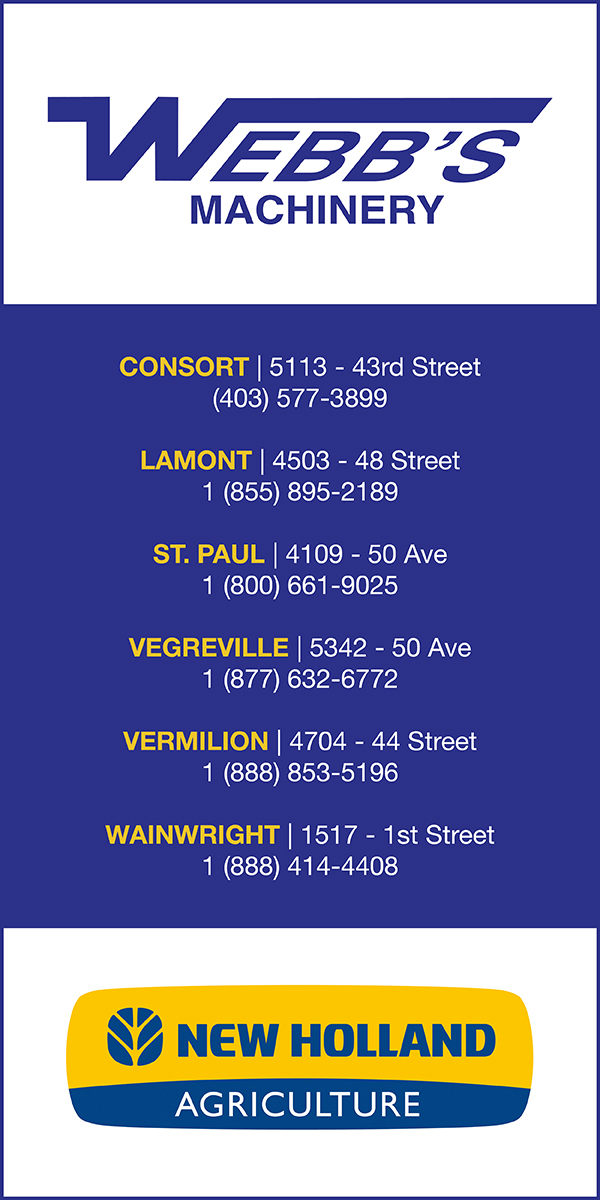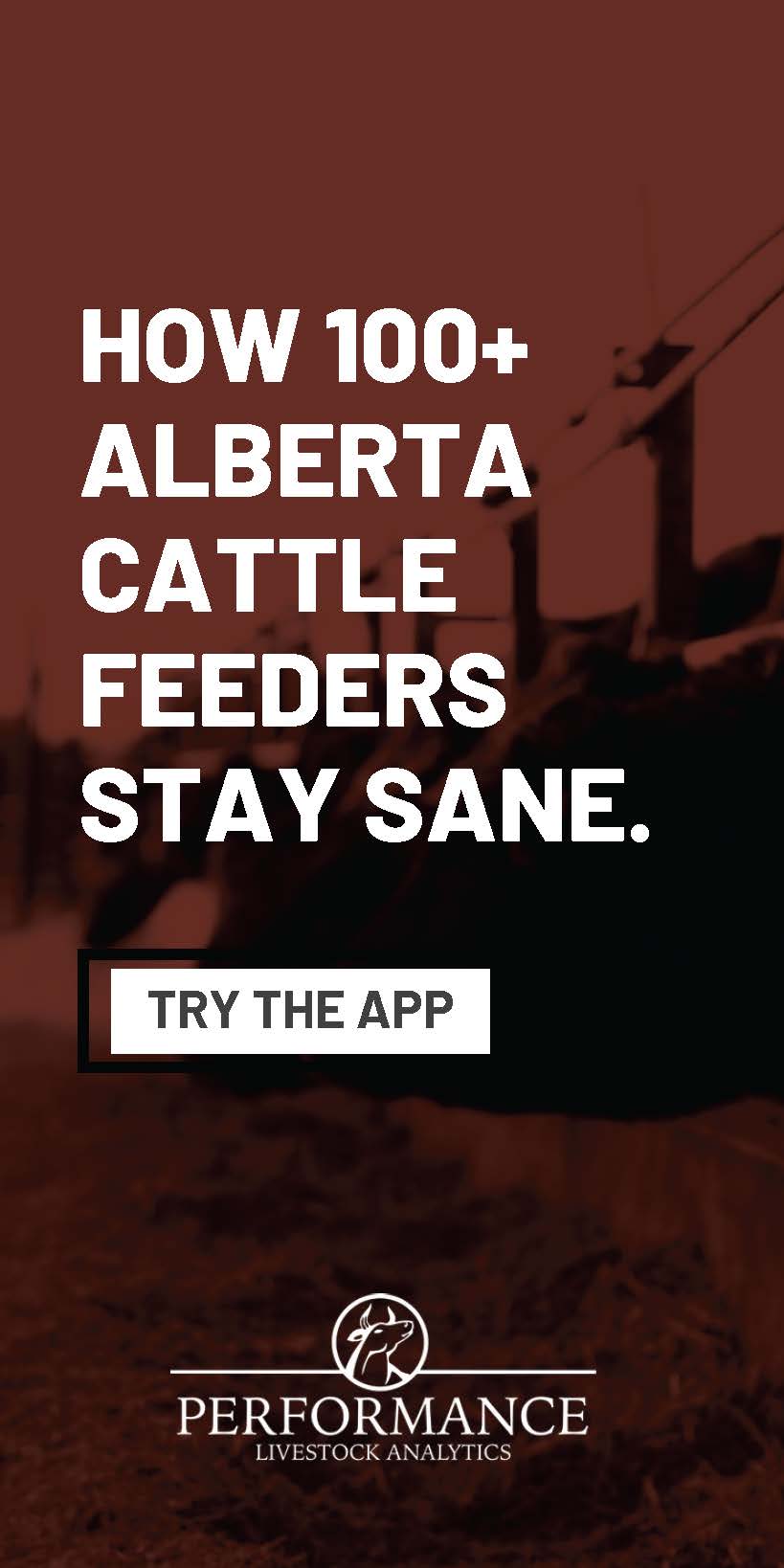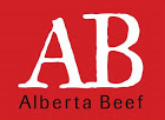The TFS Feeders head office in downtown Taber is neat, clean, nicely laid out, polite staff, no sign advertising its presence. But TFS customers know how to find it and the two men who own and operate the facility: James and David Bekkering. The Bekkering family has lived in this small city since 1960 when they left Holland for greener pastures and cheaper Canadian land prices. In 1974 Henry Bekkering (their father) acquired an interest in the Taber feed mill. He was competitive and a good businessman; from that investment he grew Taber Feed Services and the farm/feedlot interests. It was a successful integrated business that serviced clients in a 60-80 mile radius of Taber. The Bekkerings have been quietly going about building their custom feeding business for 25 years now, it’s in their blood, and at present they are finding it hard to accommodate new customers as their lots are full.
James and David have a variety of customers from retained ownership to investment feeders to larger finishing operations looking to supply their own yards. Maybe its the low key way the two brothers do business. Maybe its the guaranteed cost of gain that puts their customers at ease and their extensive knowledge of feed bunk and livestock management. In my interview with James and David I found information came easily and they were able to fill in all the gaps in their history and operations with unassuming ease. Never for a moment was there competition between them to get in the first word. Mutual respect was foremost and it was one of the fastest and most complete interviews I have ever conducted. From feed, to cattle, grain imports, and human relationships the Bekkering brothers seem to have a good grasp of all feedlot fundamentals.
Their father and his brother, Henry and Simon Bekkering, are no strangers to Alberta Beef Magazine (cover Aug. 1996). Simon and Henry and two other brothers had a feedlot at Barnwell. In 1992 David and James, their mother and siblings became involved in the family business as partners. That was the year the TFS Expanse lot was purchased in Vauxhall. The family grew the business over the years and in 1997 they added Bow River Feeders. In 1998 Henry sold Taber Feed Services to Saskatchean Wheat Pool. The company transitioned and Henry semi-retired.
So today TFS operates four lots: (Barnwell (5,500 head); TFS Expanse (11,000 head); Bow River Feeders (6,500 head); and TFS Fincastle (7,500) head. Fincastle was bought in 2014. The Bekkerings grow almost all of their corn silage on about 4,000 irrigated acres. At peak work periods they employ some 30-35 staff. That’s important in this community that has recently been ravaged by unemployment in the gas and oil sector. Prior to the oil and gas debacle the TFS operation had to compete with highly paid energy sector employment.
David Bekkering’s DB Transport imports and hauls distillers grains from rail heads to the feedlots with seven trucks. The grain represents about 20% of the feedlots rations; some beet pulp is also hauled. The distillers grains come from corn oil and ethanol plants in the United States. David risk manages most of the farm inputs and pre-purchases market positions to guarantee cost of gain. That’s no small job for 30,000 head of cattle, managing seven semis and staff and staying current with fluctuating currencies, power costs, fertilizer and fuel. He takes it in stride, “I took a degree in Feed Science at Kansas State University. Our dad wanted us to have an education. My father’s intention was for me to go to Medicine Hat to run Hi Point Feeds but during my education Hi Point was sold, so instead I worked for Buckerfields (Pioneer Grain) after graduating. After that I went back to the family business, Taber Feeds Service and then (Cangro) Saskatchewan Wheat Pool after that was sold in 1998. But I came back to the family business and oversee farming, grain buying, feed production and hauling, the irrigation and seeding.”
James adds, “My specialty is feedlot management, employees and customer relations. We’re in the cattle business, but this is a people business. And there have to be skill sets in place to handle both staff and customers with tact.” In everything they say and do, James and David are polite, to the point and concise. James adds, “During the BSE years I finished my degree in management at the University of Lethbridge in 2003. All I’ve known is full time feeding and management since graduating. Sure, we’ve had some trying times in this industry, but we’re never bored. The great drought and BSE taught us to diversify our customer base. For instance we share pens with Gateway Livestock. And in keeping with his plan to stay diversified beyond just custom feeding James runs a 330 head commercial cow herd (his bulls come from Ben Tams) and he is a shareholder in another 1,000 head commercial cow herd. It is safe to say that the Bekkerings are committed to self-reliance. And they are hedging their businesses as best they can while maintaining discreet control. James adds, “I try to give our feedlot managers as much control as possible, I’m not looking over their shoulders micro-managing every decision. If I had to do that I would have hired the wrong people.”




